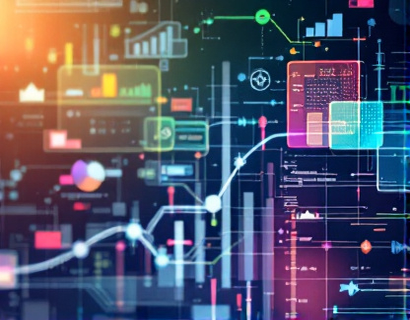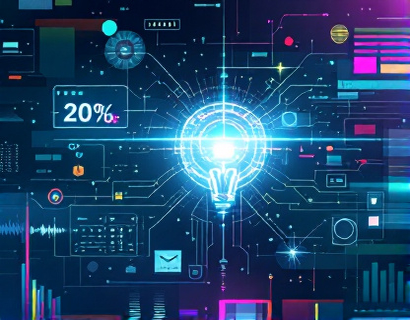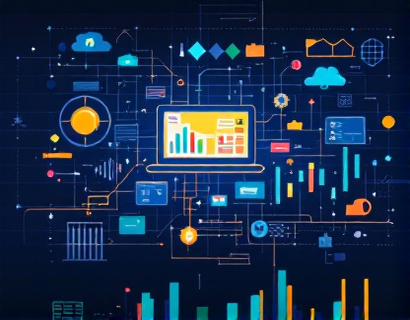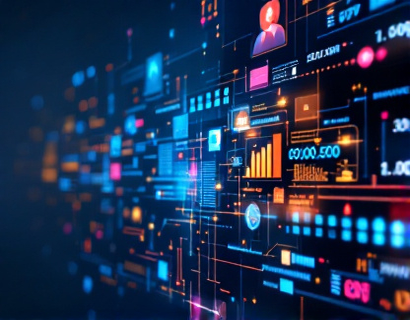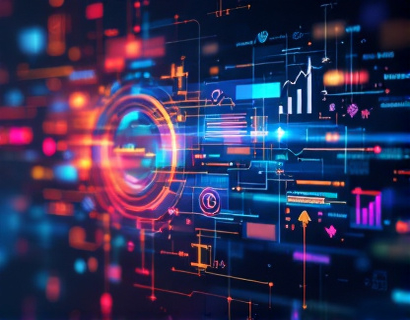Maximizing Productivity in the Digital Age with Advanced Tech Solutions
The integration of Artificial Intelligence (AI) and cryptocurrency is reshaping the digital landscape, offering unprecedented opportunities for enhancing productivity and efficiency. This article delves into the advanced solutions that are revolutionizing workflow and task management, providing tech-savvy professionals and early adopters with insights into a smarter, more efficient future.
The synergy between AI and cryptocurrency is not just a technological curiosity but a practical toolset that can transform how we approach work and manage tasks. AI, with its ability to process vast amounts of data and learn from patterns, combined with the decentralized and secure nature of cryptocurrency, creates a powerful combination for optimizing digital operations.
Understanding the Basics
To fully appreciate the potential of AI and cryptocurrency in boosting productivity, it's essential to understand the fundamentals of both technologies. AI encompasses a range of technologies including machine learning, natural language processing, and computer vision. These technologies enable machines to perform tasks that traditionally required human intervention, thereby increasing efficiency and reducing errors.
Cryptocurrency, on the other hand, is a digital or virtual currency that uses cryptography for security. It operates on a decentralized network, typically a blockchain, which ensures transparency and immutability. The most well-known cryptocurrency is Bitcoin, but there are thousands of others, each with unique features and use cases.
AI in Task Management
One of the most impactful applications of AI in productivity is in task management. AI-driven tools can automate routine tasks, prioritize workloads, and even predict potential bottlenecks. For instance, AI can analyze historical data to forecast project timelines and resource requirements, ensuring that teams are always well-prepared.
Project management platforms enhanced by AI can assign tasks based on team members' availability and skill sets, optimizing the allocation of resources. These tools can also provide real-time updates and notifications, keeping everyone on the same page without the need for constant meetings or emails.
Enhancing Collaboration with Blockchain
Blockchain technology, the backbone of cryptocurrency, offers a unique solution for enhancing collaboration. By providing a decentralized and transparent ledger, blockchain ensures that all team members have access to the same information, reducing the risk of miscommunication and errors.
Smart contracts, self-executing contracts with the terms directly written into code, can automate and enforce agreements between parties. This not only speeds up processes but also minimizes the need for intermediaries, reducing costs and increasing trust.
Secure Data Management
Data security is a critical aspect of productivity in the digital age. AI and blockchain together offer robust solutions for secure data management. AI can detect anomalies and potential security threats in real-time, while blockchain ensures that data is stored securely and immutably.
For businesses handling sensitive information, this combination provides a high level of security without compromising on accessibility. Employees can access necessary data quickly and securely, ensuring that workflows are not hindered by security concerns.
Intelligent Automation
Automation powered by AI can significantly boost productivity by taking over repetitive and time-consuming tasks. Robotic Process Automation (RPA) is a prime example, where bots can mimic human actions to perform tasks such as data entry, report generation, and customer service responses.
By automating these tasks, AI allows human employees to focus on higher-value activities that require creativity and critical thinking. This not only increases efficiency but also enhances job satisfaction by reducing monotony and allowing for more engaging work.
Personalized Productivity Tools
AI can tailor productivity tools to individual preferences and work styles. Machine learning algorithms can analyze user behavior to suggest optimal work schedules, recommend tools for specific tasks, and even adjust the interface to enhance usability.
For example, AI-driven virtual assistants can manage calendars, set reminders, and even draft emails based on context. These personalized tools adapt to the user's needs, making the digital workspace more intuitive and efficient.
Financial Efficiency with Cryptocurrency
Cryptocurrency can play a significant role in financial efficiency within organizations. By using cryptocurrency for transactions, businesses can reduce fees associated with traditional banking systems, especially for international payments.
Moreover, the transparency of blockchain ensures that financial transactions are traceable and verifiable, reducing the risk of fraud and errors. This can lead to significant cost savings and a more streamlined financial management process.
Incentivization and Tokenization
Tokenization, a process where assets are represented by digital tokens on a blockchain, can be used to incentivize performance and engagement. In a workplace setting, tokens can be awarded for achieving milestones or demonstrating desired behaviors, which can then be redeemed for rewards or privileges.
This gamification of work can boost motivation and productivity, as employees are more likely to engage when there are tangible incentives involved. Tokenization also facilitates a more flexible and fair reward system, aligning individual goals with organizational objectives.
Challenges and Considerations
While the potential benefits are substantial, integrating AI and cryptocurrency into productivity solutions comes with its own set of challenges. One major concern is the complexity of implementation. Organizations need to invest in training and infrastructure to fully leverage these technologies.
Another consideration is the regulatory environment. Cryptocurrency is still a relatively new and evolving field, with regulations varying widely across jurisdictions. Businesses must navigate these regulations carefully to avoid compliance issues.
Additionally, there is the issue of scalability. While AI and blockchain offer powerful tools, ensuring that these solutions can scale to meet the needs of large organizations requires careful planning and robust technical support.
Future Trends
Looking ahead, the integration of AI and cryptocurrency is likely to become even more sophisticated. Advancements in AI, such as quantum machine learning, promise to further enhance the capabilities of these technologies.
Moreover, the rise of decentralized applications (dApps) built on blockchain platforms is set to revolutionize how we interact with digital services. These dApps can offer more secure, transparent, and user-controlled alternatives to traditional applications, further enhancing productivity and efficiency.
The convergence of AI and cryptocurrency is not just a trend but a fundamental shift in how we approach digital work. As these technologies continue to evolve, they will undoubtedly play a pivotal role in shaping the future of productivity and task management.





